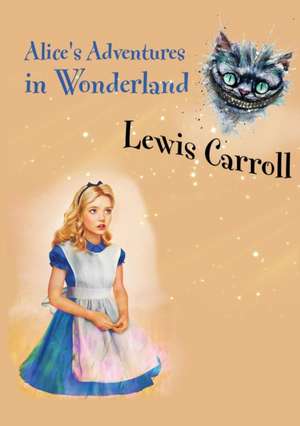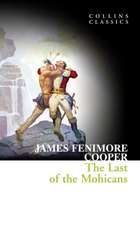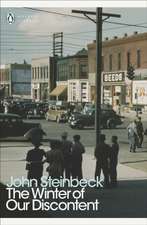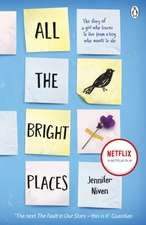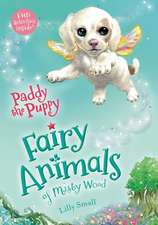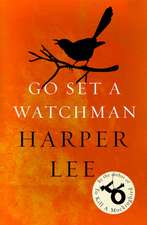Alice's Adventures in Wonderland
Autor Lewis Carrollen Limba Engleză Paperback – 20 apr 2017
QR Codes are used for product tracking, item identification, time tracking, document management, and general marketing. A QR Code consists of black squares arranged in a square grid on a white background, which can be read by an imaging device such as a camera, and processed using Reed-Solomon error correction until the image can be appropriately interpreted. Under good lighting with a clear image, interpretation can happen very quickly indeed. The encoded data is extracted from patterns found in both horizontal and vertical components of the image.
QR Codes are used around the world to enable people to get to websites quickly. They can also be used for advertisements. In this book the text of Alice's Adventures in Wonderland has been represented in QR Codes. This is not the first time QR Codes have been used for Alice. A project called Books2Barcodes originated by Mike Lacher published online a number of books encoded with QR Codes. That project presented Alice divided into 186 QR Codes. Each of these encoded about 780 characters, except for the last one which contained 301. In the Books2Barcodes edition, which was released in 2011, the resolved text shows linebreaks within paragraphs, and writes italicized words in ALL CAPITALS.
The present book divides Alice somewhat differently. Here, section breaks occur exclusively at paragraph endings, and the placement of John Tenniel's illustrations has also been taken into account. The 141,748 characters (including spaces) which occur in the book have been divided into 113 QR Codes which have an average character count of 1290; the longest QR Code contains 1683 characters (p. 30), and the shortest contains 629 characters (p. 38).
In this edition, runs of italic text are preceded and followed by an underscore _thus_. Each paragraph is separated from the next by a full linespace, and tabs are used to indent lines of poetry where warranted.
In keeping with the electronically-parseable format of the text in this book, the OCR-A font has been used for un-encoded text, as in the page headers and footers, and the OCR-B font for the chapter titles and this Foreword. The tag on the Hatter's hat has been rendered in QR Code, but as QR Code is square in shape, it could not be used for the "DRINK ME" tag. For this Braille "⠙⠗⠊⠝⠅⠀⠍⠑" has been used, as it is another matrix-based writing system.
At the beginning of each chapter the decorative Victorian headers used in other Evertype Alice books have been replaced by "Code 128" barcodes. There are many good apps for modern smartphones that can parse these codes as well as the QR codes useed for the text of the book itself.
Preț: 56.90 lei
Nou
10.89€ • 11.86$ • 9.17£
Carte tipărită la comandă
Livrare economică 19-25 aprilie
Specificații
ISBN-10: 6069832825
Pagini: 86
Dimensiuni: 149 x 216 x 10 mm
Greutate: 0.11 kg
Editura: SC Active Business Development SRL
Notă biografică
Lewis Carroll, born Charles Lutwidge Dodgson (1832-98), grew up in Cheshire in the village of Daresbury, the son of a parish priest. He was a brilliant mathematician, a skilled photographer and a meticulous letter and diary writer.Alice's Adventures in Wonderland,inspired by Alice Liddell, the daughter of the Dean of Christ Church in Oxford, was published in 1865, followed byThrough the Looking-Glassin 1871. He wrote numerous stories and poems for children including the nonsense poemThe Hunting of the Snarkand fairy storiesSylvie and Bruno.
Chris Riddell (Introducer)
Chris Riddell, the 2015-2017 Uk Children's Laureate, is an acclaimed artist of children's books and a political cartoonist for the Observer. Amongst other titles, Chris illustrates theOttolineyoung fiction series andthe Goth Girlseries, as well as working closely with Paul Stewart on theEdge ChroniclesandWyrmeweald. He has won many awards for his work, including the Nestlé Gold Award, the Costa Children's Book Award 2013, the UNESCO Award forSomething Elseand the rare honour of two Kate Greenaway Medals.
Descriere
Go down the rabbit hole with Alice in this brand-new edition of Lewis Carroll's classic stories, Alice's Adventures in Wonderland and Through the Looking-Glass.
Produced in association with the UK's National Gallery, this handsome new hardback edition's dustjacket features artwork from the gallery's collection and includes expert notes on the art. The image is A Girl with a Kitten, probably by Jean-Baptiste Perroneau – an idealised portrait of a young girl with her pet which evokes Alice and her cat Dinah.
Featuring the full original text of both Alice's Adventures in Wonderland and Through the Looking-Glass, this striking edition is the ideal gift for anyone who loves the characters, wit and sublime silliness of Alice's adventures.
This volume is part of the new Masterpiece Classics series from Welbeck, which includes The Jungle Books.
Caracteristici noi
Cuprins
Caracteristici
Recenzii
Textul de pe ultima copertă
For over 125 years John Tenniel's superb illustrations for Alice's Adventures in Wonderland have been the perfect complement to Lewis Carroll's timeless story. In that time Alice has been illustrated by numerous artists, but not one has come close to matching the universal appeal of the original pictures.
This is the first Alice to reproduce Ternniel's exquisite drawings from prints taken directly from the original wood engravings. Here, Tenniel's fine line work is far crisper, delicate shadings are reproduced with more subtlety, and details never seen before are now visible.
Like most nineteenth-century children's books, the pictures for Alice were created by transferring the artist's drawings to woodblocks, But with Alice, the original blocks served as masters from which metal plates were made for printing. Unfortunately, these plates deteriorated from the repeated pressure applied during printing, and over time, many of the fine lines in Tenniel's pictures simply vanished altogether.As the year-, passed, the original woodblocks disappeared and were believed lost; then, in 1985 they were discovered in a London bank vault.
Now, for the first time, prints from these woodblocks have been used to produce a deluxe gift edition with clearer, more detailed images than have ever been seen before. At last, readers can see the Alice that Carroll and Tenniel had originally envisioned.
